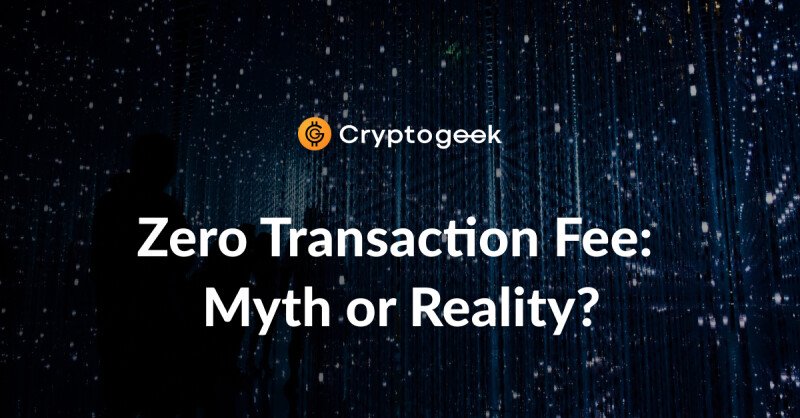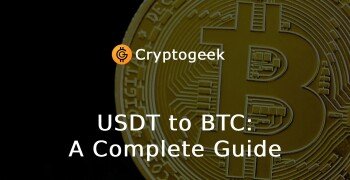Transactions Without Fees - Is This Real In 2022?


There are obvious obstacles that delay the mass adoption of cryptocurrencies and blockchain-based platforms in general, namely price volatility (in the case of cryptocurrencies), and poor scalability (low capacity of the networks also known as the bottleneck problem).
Nevertheless, scalability is set to be improved — numerous developers are working on solving this issue and the methods are diverse. Most probably this issue will be solved successfully, it is just a matter of time. Moreover, the price volatility of some cryptocurrencies is quite relative. In March of 2020, many national currencies were more volatile than Bitcoin and other cryptocurrencies.
Yet, there is another problem (not so big though) — transaction fees. At times, fees for cryptocurrency transactions are hardly predictable or high. That's not something that makes the use of cryptocurrencies attractive. Additionally, the fact that some of the blockchain or cryptocurrency-related platforms have found the way to eliminate fees completely draws hope that the problem of costs for transactions can be addressed, too.
The mission of fee elimination seemed impossible. It was so before the first fee-free platforms emerged and proved the opposite by their very existence. Actually the costs of transactions were not totally removed. It’s better to say that the users of these platforms no longer have to pay for transactions.
The reason why commissions were necessary is that the miners or other types of block producers needed some incentive to continue the validation of transactions. Mining is costly while the mining rewards decrease gradually. Many developers prefer to continue collecting fees from the users but do their best to reduce the costs and make them neglectable. However, the human mind knows no limits and soon several dev teams created platforms processing costless transactions. These platforms deploy new approaches to rewarding block producers.
Which Companies Have Already Ceased to Collect Transaction Fees?
A multi-currency wallet Freewallet has probably gained its name due to a feature of free transactions between the registered users of this platform. One of the latest functions brought to the table by the Freewallet team is the quick fee-free exchange. It supports dozens of ERC20 tokens and such currencies BTC, ETH, XMR, LTC, USDT, DOGE, and several others. Using the custom solutions the dev team made it possible to increase the anonymity of the transactions made via this service. It turns Freewallet into a new exchange platform with the exchange rate comparable with rates of the industry leaders. The platform is paying all the transaction and maintenance expenses itself freeing users from these burdens. However, most of the platforms that offer free transactions are not wallets or exchanges but the entire decentralized blockchain platforms. Below we will cover some notable examples.
Probably one of the most significant blockchain platforms that don't charge transaction fees is IOTA. While on other blockchains transaction confirmation is "outsourced" to miners or other entities, IOTA users are obliged to confirm two previous transactions themselves in order to make their own. In some sense users "pay" for transactions with this work but technically, IOTA has successfully eliminated fees in their ordinary sense.
The developers of some platforms prefer to pay transaction fees while users can make transactions for free. Two of the most significant and successful projects using such models are EOS and NEO.
EOS has introduced an unconventional solution. Instead of paying for transactions users should buy RAM in the time of the creation of a new account. Block producers receive rewards because new users pay while registering, and the RAM is used to perform transactions and execute smart contracts. Such differentiation maintains the balance of the system. As EOS is aimed to be a large ecosystem for decentralized apps, it is really important not to charge users with fees as many dApps are not dealing with money at all (for example, decentralized search engines) and should operate for free to survive in competition with such centralized giants as Google. It’s worth saying that the RAM expenses are viewed by some as no less problem than transaction commissions.
Another notable solution is used on the NEO platform. This blockchain has its native token NEO and a separate token to pay the transaction fees, GAS. NEO is rather a share in a network than a payment measure. The exchange of NEO does not require paying commission. To execute smart contracts on the NEO blockchain it's needed to pay 10 GAS. Most of the transactions costs are paid by the developers. As they pay commissions, spent GAS gets distributed between the users.
Some blockchains are developed and controlled by centralized companies. These platforms are not autonomous and companies can pay transaction expenses for their users at goodwill. That's what Kik does. This messenger app is built on top of the Kin blockchain and doesn't take commissions from its users as they are paid by the company itself.
Conclusion
We have to agree with the EOS creator Dan Larimer that people will barely be eager to pay fees for services similar to ones that are provided by centralized companies for free. That's the reason why the goal to find the solution to the task of removing the transaction costs is quite important to make blockchain a mainstream technology.
The good thing is that some companies already found more or less efficient ways to stop collecting fees. Notably, most of them can be found among the top blockchain companies by market cap. Their success means that charging users with fees is not necessary to maintain balance and continue excellent operation. Hopefully, this will stimulate other developers to find solutions for disburdening users from paying for each transaction.








